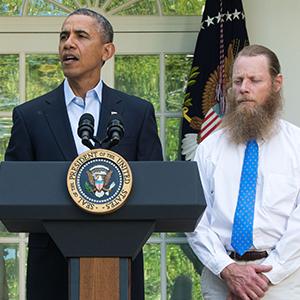Richard Fernandez has an interesting take on Obama’s present foreign policy iteration. He sees himself as The Godfather negotiating among his capos and arranging the territories that each are allowed to possess.
The White House is also exploring what could be a diplomatic blockbuster: possible new limits and controls on Pakistan’s nuclear weapons and delivery systems. Such an accord might eventually open a path toward a Pakistani version of the civil nuclear deal that was done with India in 2005….
Pakistan prizes its nuclear program, so negotiations would be slow and difficult, and it’s not clear that Islamabad would be willing to accept the limitations that would be required. But the issue is being discussed quietly in the run-up to Prime Minister Nawaz Sharif’s visit to Washington Oct. 22. Any progress would break a stalemate that has existed since the U.S. detected Pakistan’s nuclear program in the mid-1980s, and especially after Pakistan exploded its first weapon in 1998.
This is behind our negotiations with the Taliban, which seems just as intent on upsetting Obama’s applecart as they ever were. No matter. Obama will keep negotiating. As Woody Allan once said of stockbrokers, “They invest your money and keep investing it until it is all gone.”
David Ignatius seems to approve of this approach.
The U.S. recognized more than four years ago that the best way out of the Afghanistan conflict would be a diplomatic settlement that involved the Taliban and its sometime sponsors in Pakistan. State Department officials have been conducting secret peace talks, on and off, since 2011. That effort hasn’t borne fruit yet, as the Taliban’s recent offensive in Kunduz shows.
But the pace of negotiations has quickened this year, thanks to an unlikely U.S. diplomatic partnership with China. A senior administration official said Monday that “we’re hopeful that there will be a willingness on the part of the Taliban to resume negotiations,” despite the intense fighting in Kunduz and elsewhere. Beijing’s involvement is a “new dynamic” and shows an instance where “U.S. interests overlap with those of China.”
Yes, China will pull our chestnuts out of this particular fire. We can trust the Chinese. After all, we trusted them with the OPM database management.
It’s not just that the Office of Personnel Management (OPM) failed to certify nearly a quarter of its IT systems as secure.
The real news is that outsourcing government IT tasks led to Chinese contract workers, and at least one person working in China, having root access to OPM systems.
Having root access, of course, means having access to any data you want in the system regardless of any security application that may protect the data against “unauthorized” users.
